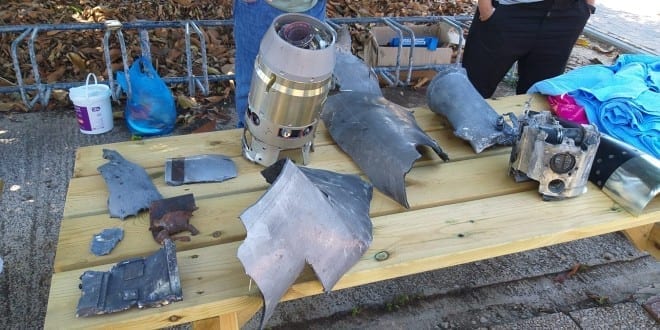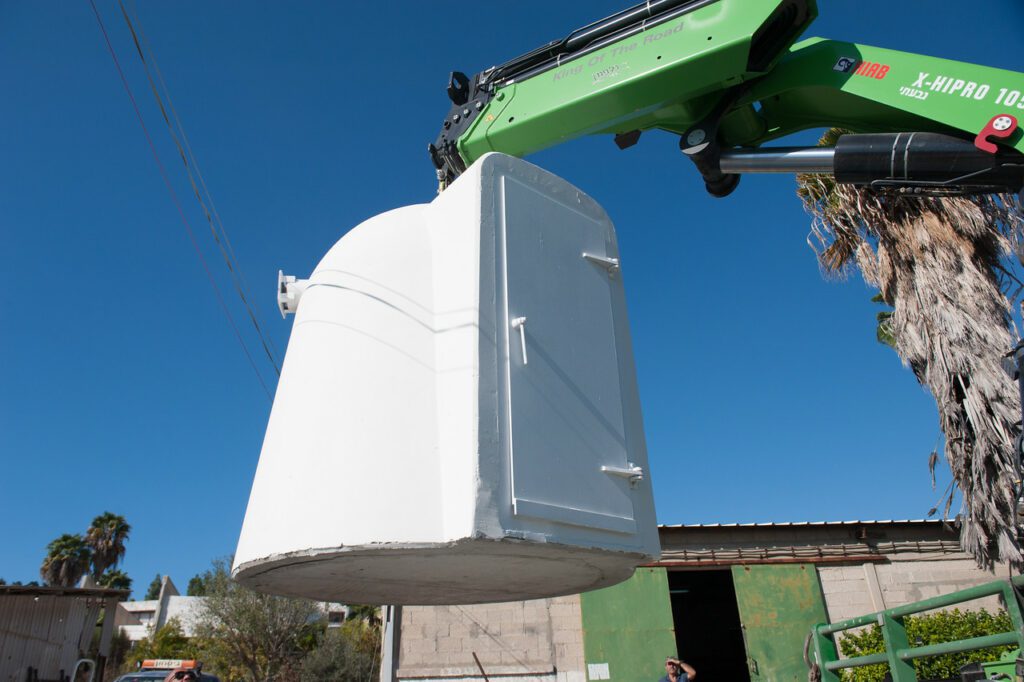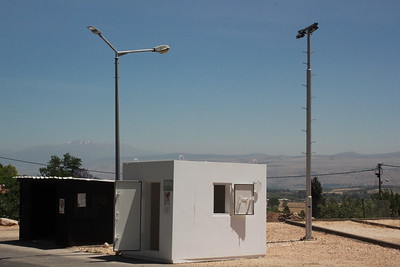
Israel365 leads effort to provide desperately needed bomb shelters before next round of rockets
Living under the shadow of threat, when the sirens go off, some communities only have a few seconds to find shelter. Unfortunately, a recent study showed that nearly one-third of at-risk Israelis still do not have access to adequate shelters. As the rockets began to fall, Israel365 jumped into action and the first shelter will be placed already this week.
On Friday, the Palestinian Islamic Jihad began a murderous three-day assault on Israel, launching nearly 1,000 rockets targeting civilian centers from Tel Aviv to the communities surrounding Jerusalem and Beersheba. The hardest hit were the communities in the south of Israel. Though the Iron Dome air defense system intercepted some 300 projectiles. The military said the Iron Dome demonstrated a 96 percent success rate at intercepting projectiles fired toward populated areas.
As Shabbat ended and the austere day of Tisha B’Av, commemorating the destruction of the Jewish Temples in Jerusalem, began, Israelis heard the news of the attack. Rabbi Tuly Weisz, the head of Israel365 decided he had to act.
“I immediately thought about all the families we know in the south,” Rabbi Weisz said. “We were there last year when the missiles fell, placing shelters, and the stories they told of being caught in the open when the sirens went off were shocking.”

fragments of rockets; a heavy metal tube from a crude Hamas rocket, mostly intact, and light metal, plastic and high-tech components of the Iron Dome missiles

Bell shelters that hold 12 adult (Photo Israel365)
Last year, when Hamas attacked Israel with more than 4,340 rockets, Israel365 provided bomb shelters to Kibbutz Karmia.
“Not everyone has access to bomb shelters and if the siren goes off when you are out in the open, it is a terrifying experience,” Rabbi Weisz said. “Last year, we placed a bell shelter just a few dozen meters from a children’s house where the kids play on the grassy field.”
Israeli law requires all new buildings to have a protected space but an article in the Times of Israel summarizing the attacks lamented that despite the ongoing threat, many residents in at-risk areas still do not have access to adequate shelters. A 2020 comptroller report found that nearly 30 percent of Israeli citizens do not have access to functioning bomb shelters near their homes, including over a quarter of a million people who live near the borders with the Gaza Strip and Lebanon.
Tragically, rocket attacks from Gaza have become a regular occurrence, only increasing with time. In 2012, over 2,200 rockets were fired at Israel and two years later, 2,800 rockets and an additional 1,700 mortars were fired at Israel. The attacks continued, culminating in May 2021 when more than 4,340 rockets were fired toward Sderot, Ashkelon, Ashdod, Jerusalem and other communities. Ten Israelis were killed. By 21 May, when a ceasefire came into effect, at least 4,000 rockets had been fired from the Gaza Strip towards Israel.
The reality is that early warning systems give residents in southern Israel about 15 seconds to get to a protected shelter. Communities that are on the border have even less time, sometimes as little as seven seconds. Residents are frequently required to seek shelter while distant from any indoor protected space.
Rabbi Weisz immediately called Shmuel Bowman, the executive director of Operation Lifeshield, an organization that provides bomb shelters in Israel’s most vulnerable communities.

Cube Shelters that hold 20+ adults
“I asked him where we could help immediately,” Rabbi Weisz said, committing on the spot to dedicating a cube shelter in Kibbutz Gvar’am located about five miles from the Gaza border. The kibbutz has been targeted by Hamas rockets for many years and in 2008, a rocket killed a resident of the kibbutz. It should be remembered that the kibbutz is susceptible to rockets that directly target it as well as shortfalls from attacks targeting cities in the heart of Israel. Also, the Iron Dome shoots down incoming rockets over the kibbutz.
Israel365 has committed to providing protection for these southern communities. This protection comes in several forms. For older buildings that do not have a built-in shelter, a fortified room can be added. For open spaces, cube shelters provide protection from rockets for up to 20 adults. Bell shelters can hold up to 12 adults. The shelters can be moved and placed precisely where they are needed, providing protection where there is none.
A ceasefire took effect at 11:30 PM on Monday night but the PIJ has already announced they will not honor it if Israel does not release terrorists from jail, a concession the Israeli government is unwilling to make. In any case, rocket fire continued for at least twenty minutes after the agreed-upon deadline.
Taking previous ceasefires as an example, the IDF continued to enforce restrictions on gatherings and outdoor activities in areas threatened by the rockets.
One man was lightly injured Sunday evening by a rocket that hit an industrial zone in Ashkelon. There were power outages in some southern towns due to another rocket hitting electrical lines in the area. The Defense Ministry said that three mortars also hit the Erez Crossing between Israel and Gaza. Three Israelis were wounded by shrapnel, and others were forced to shelter from barrages of rockets fired from Gaza.
To find out more about Israel365’s efforts to bring shelter to Israelis, go to the website.
Israel in the News

